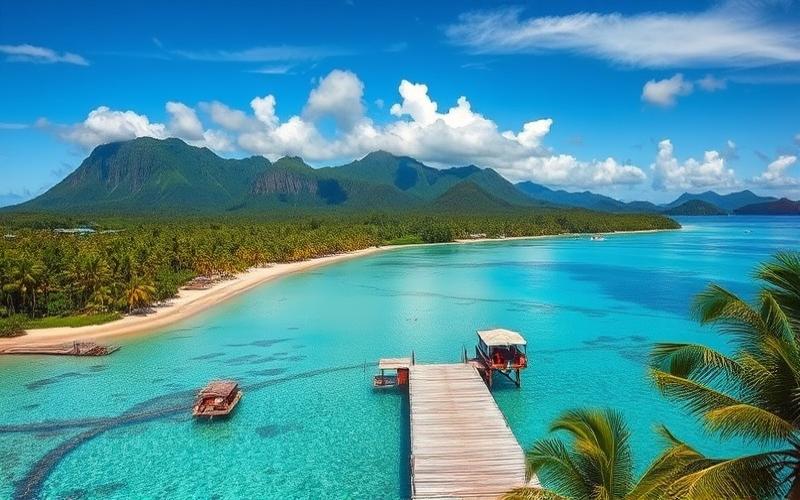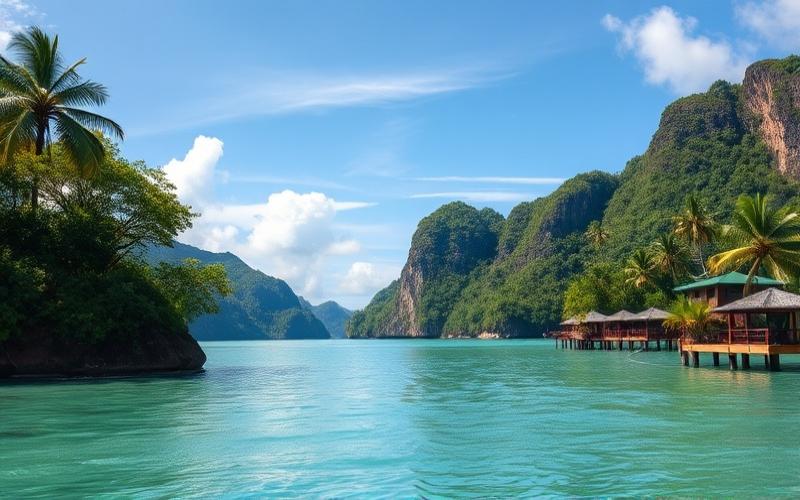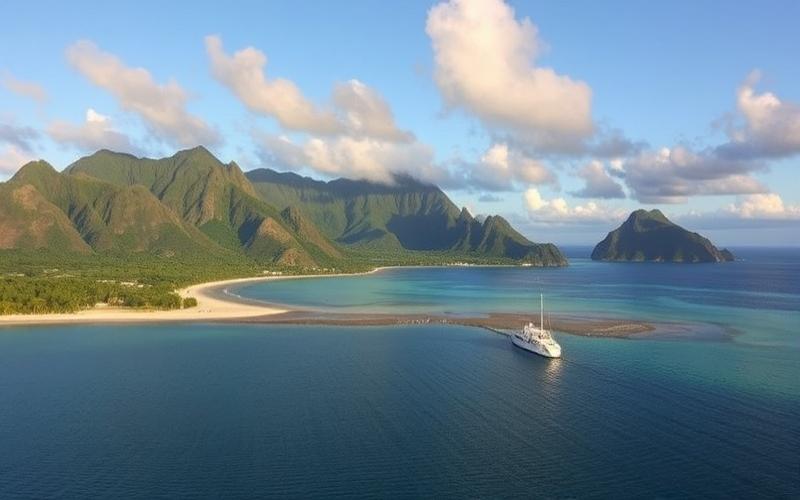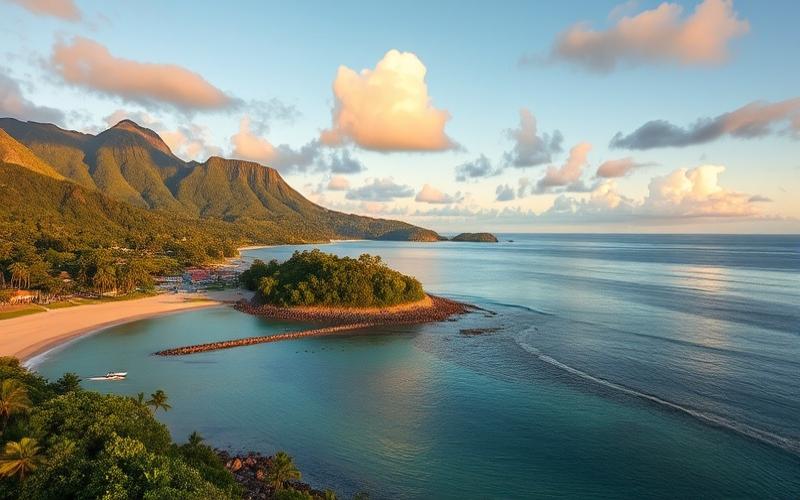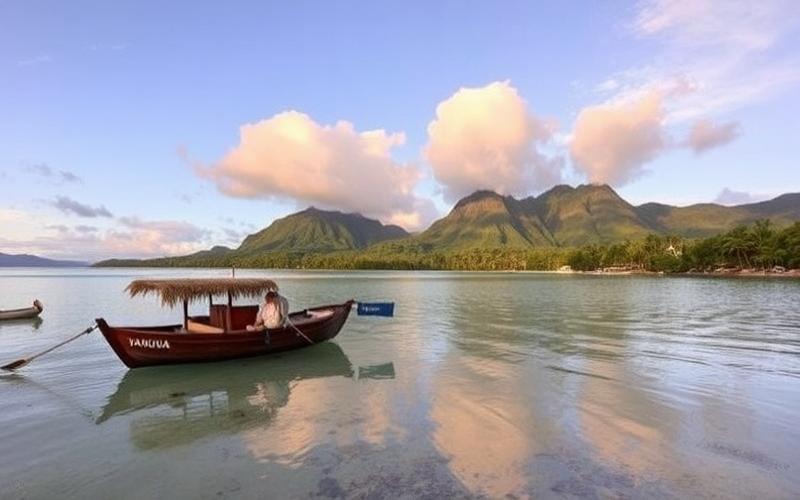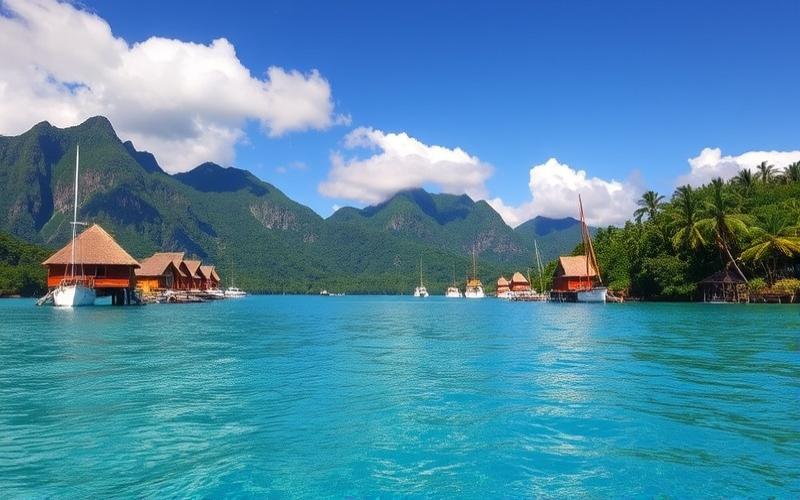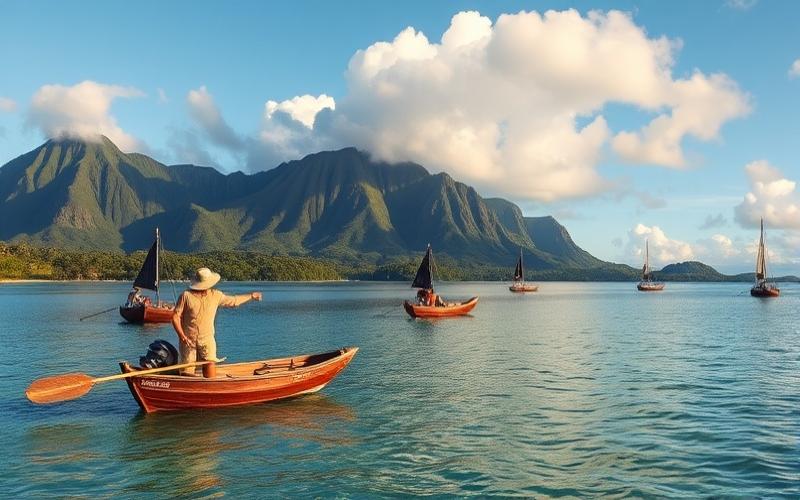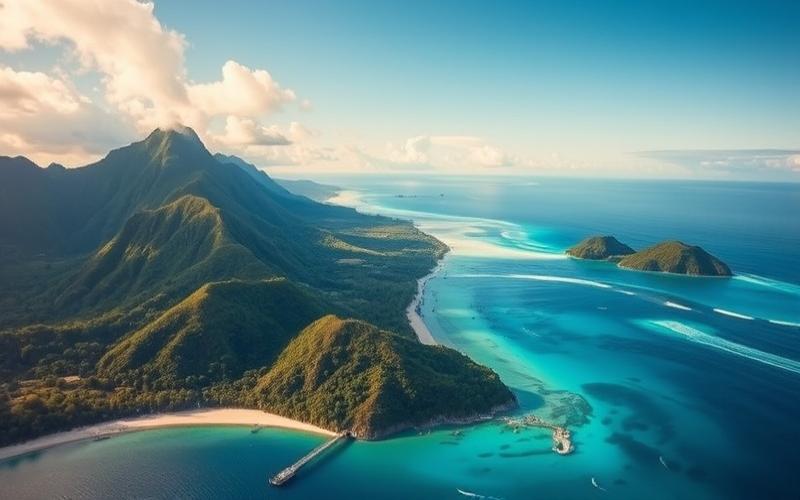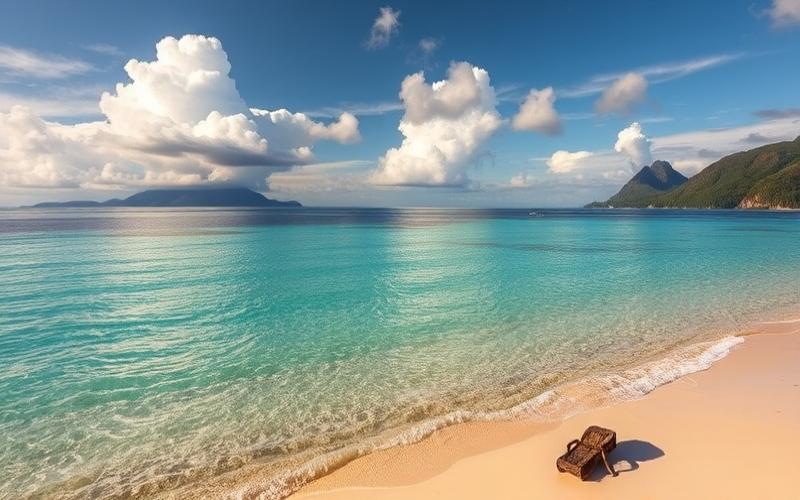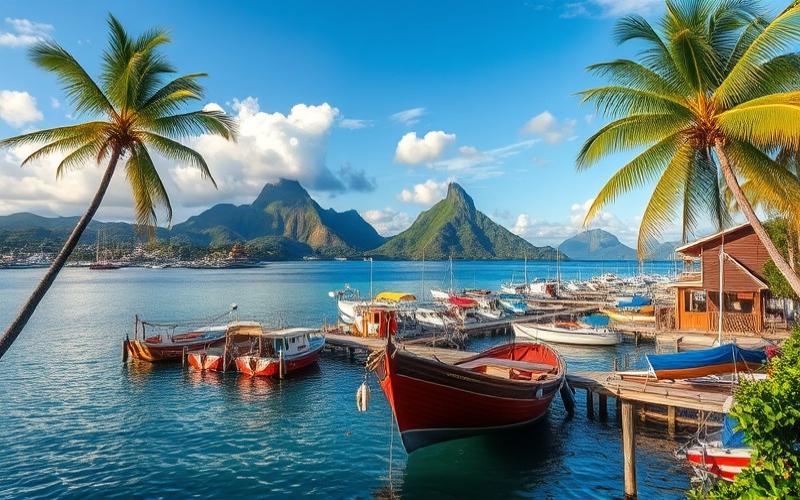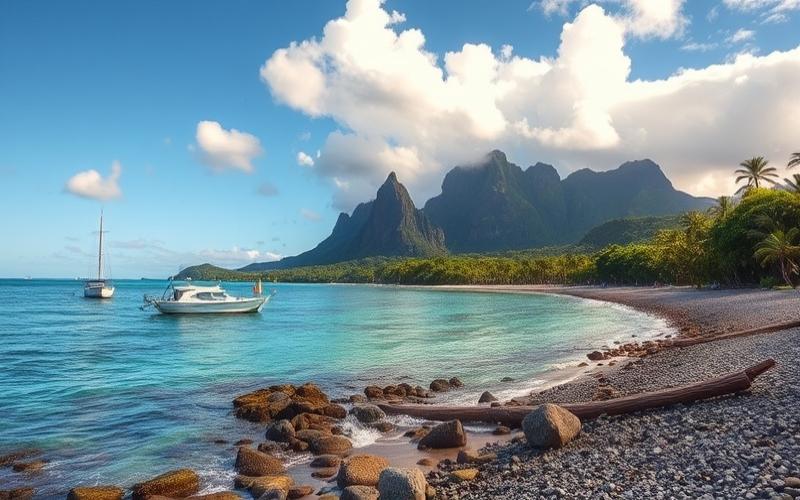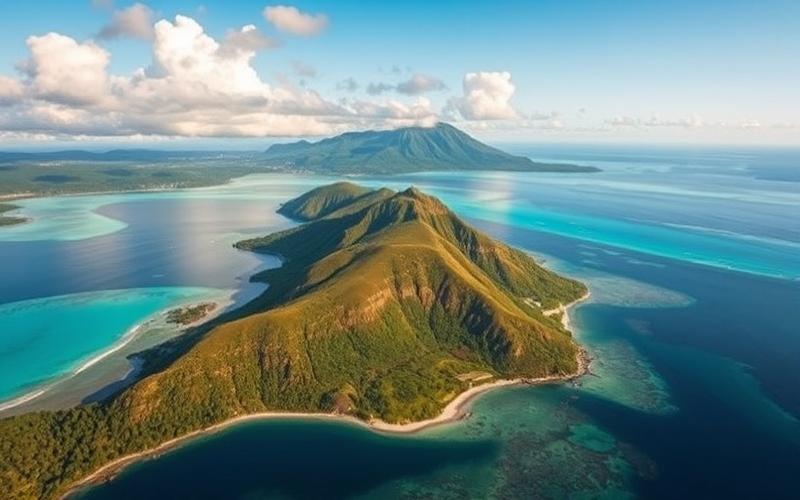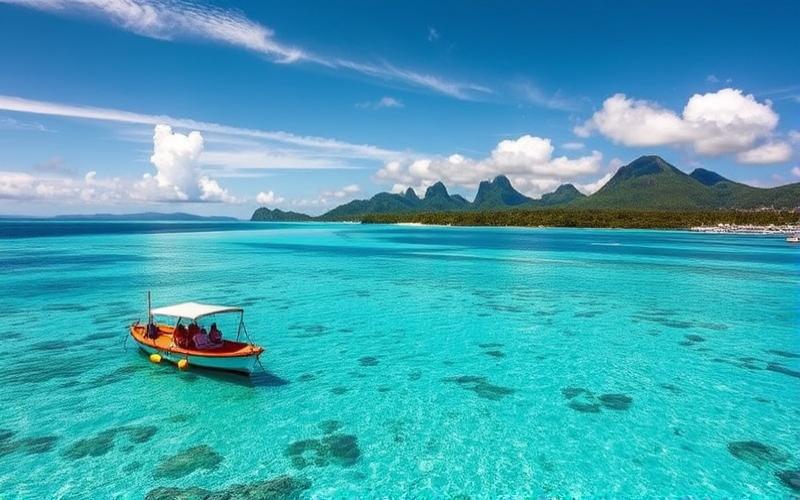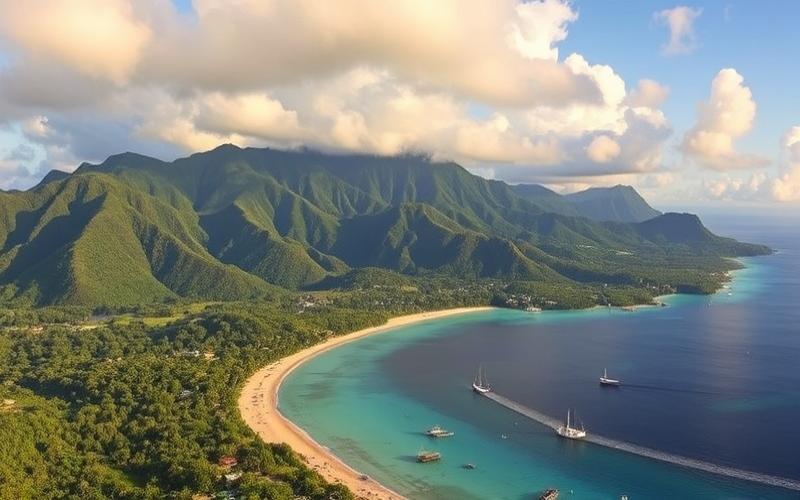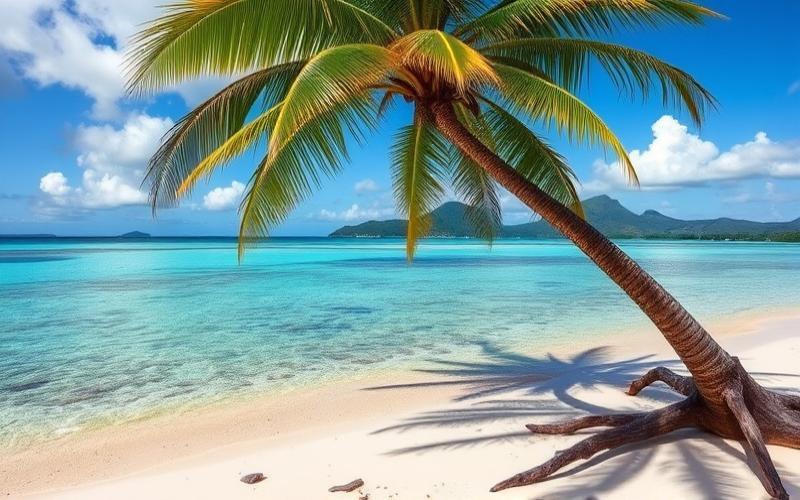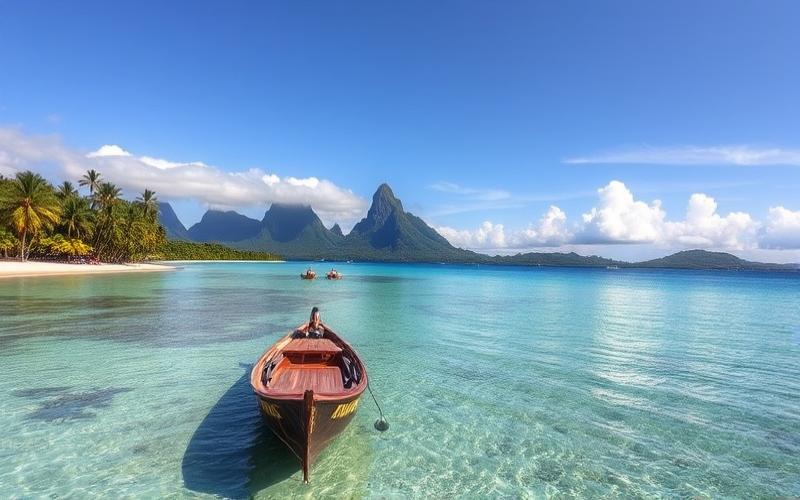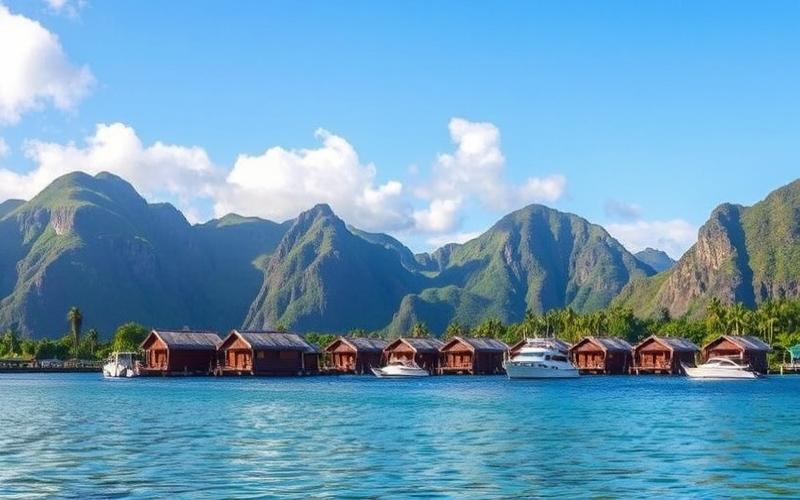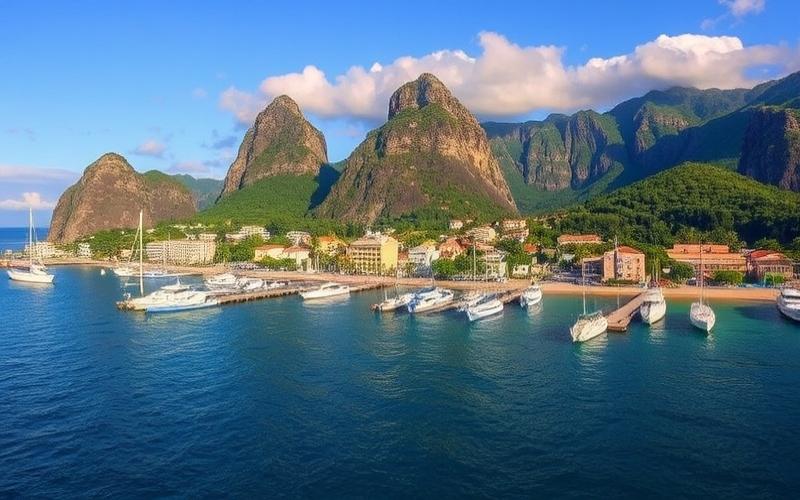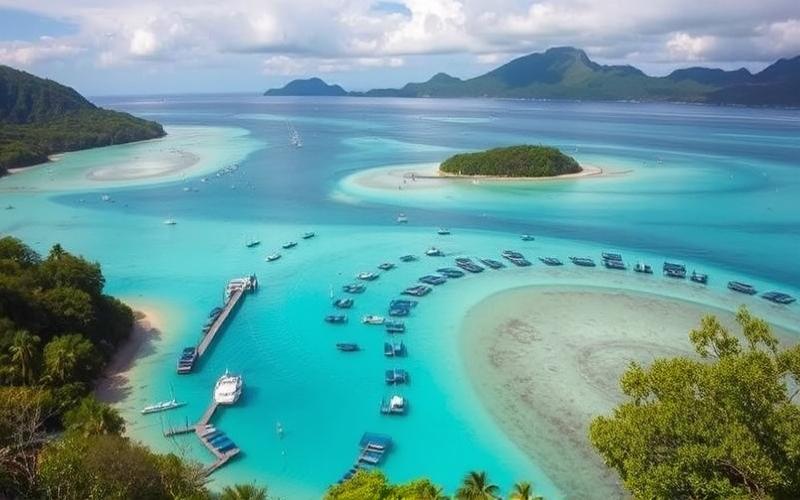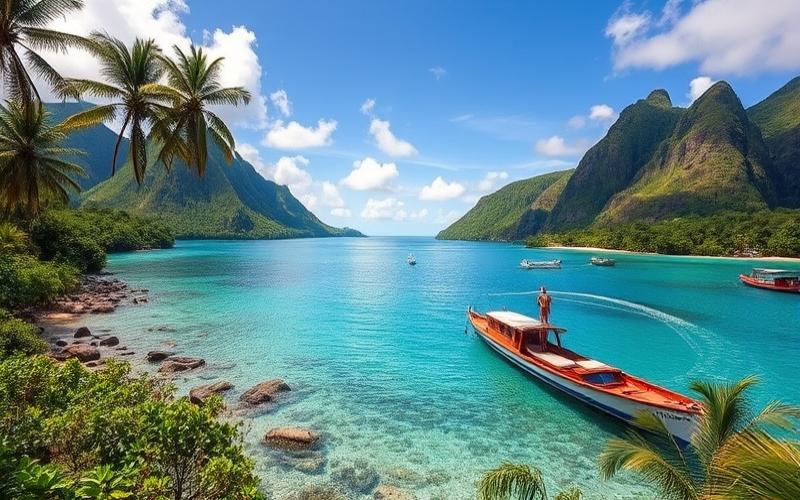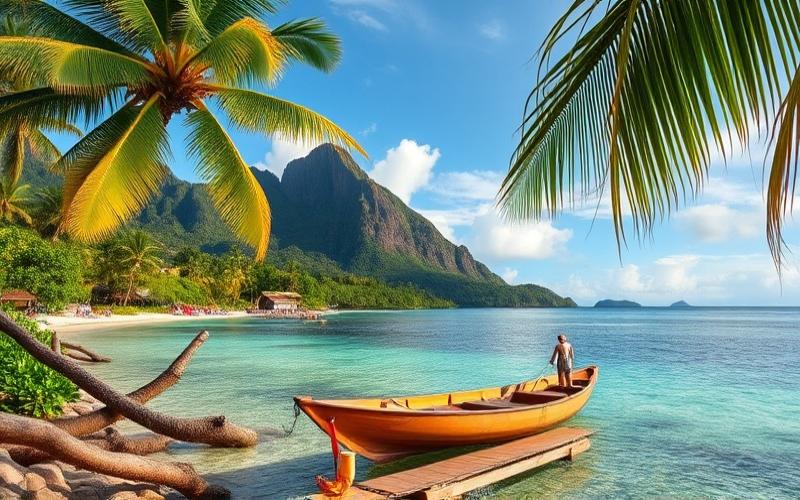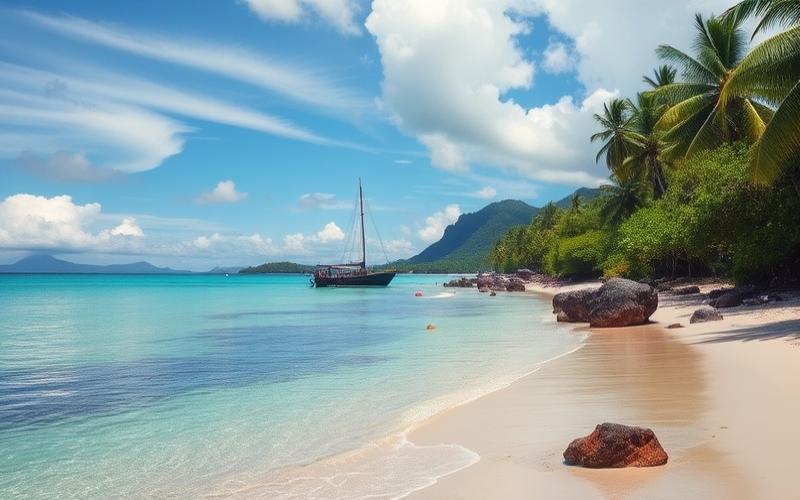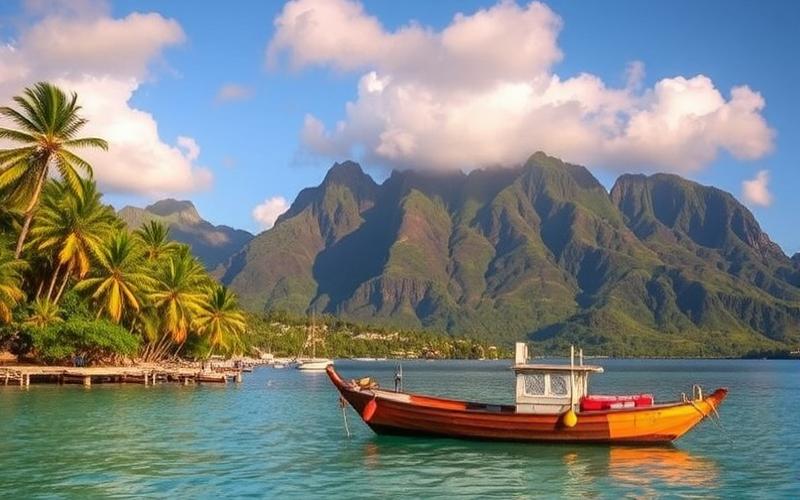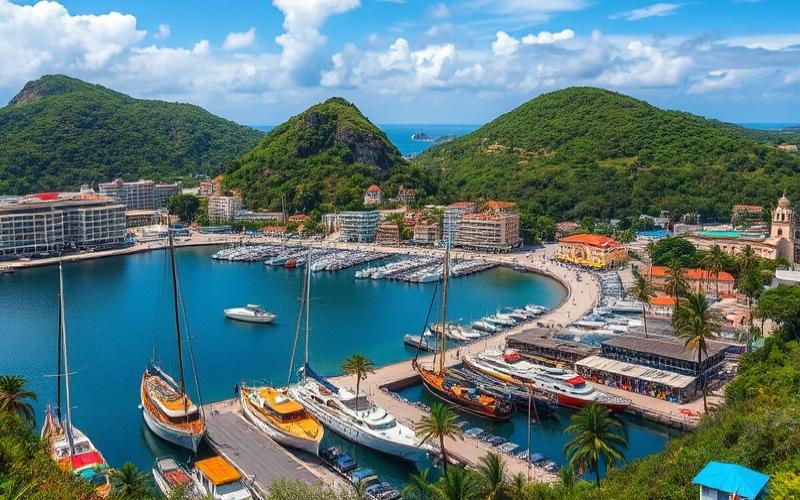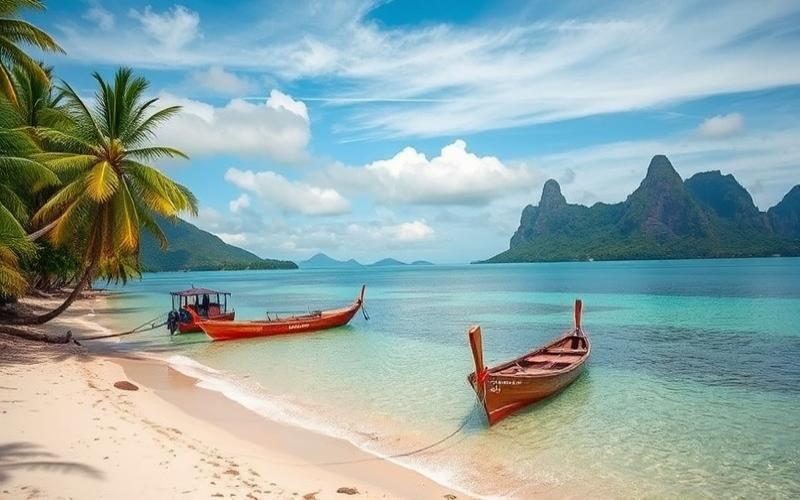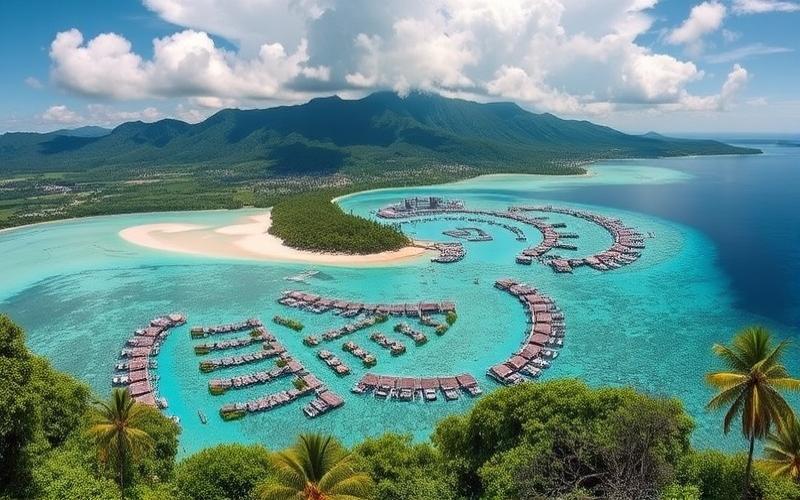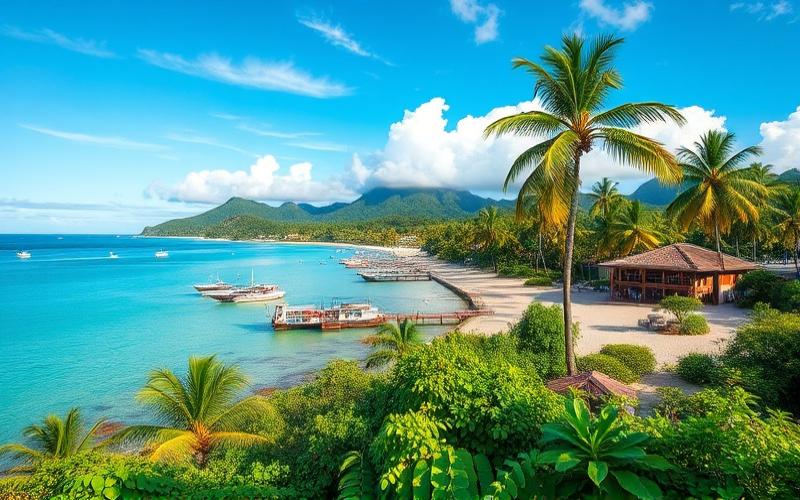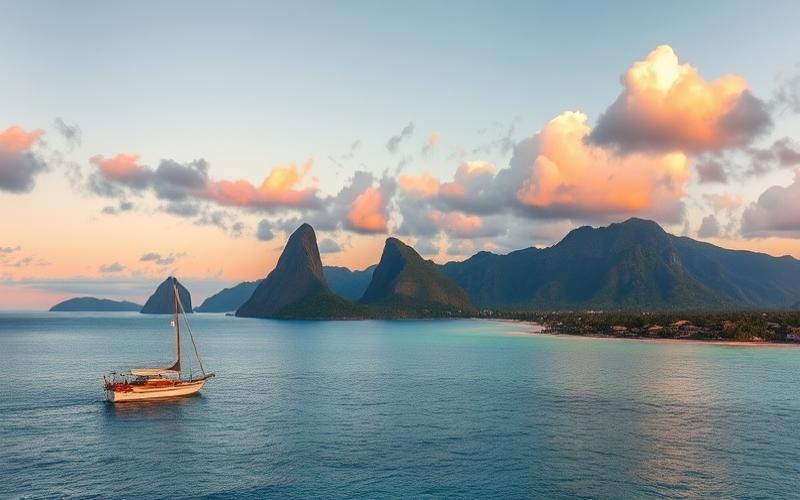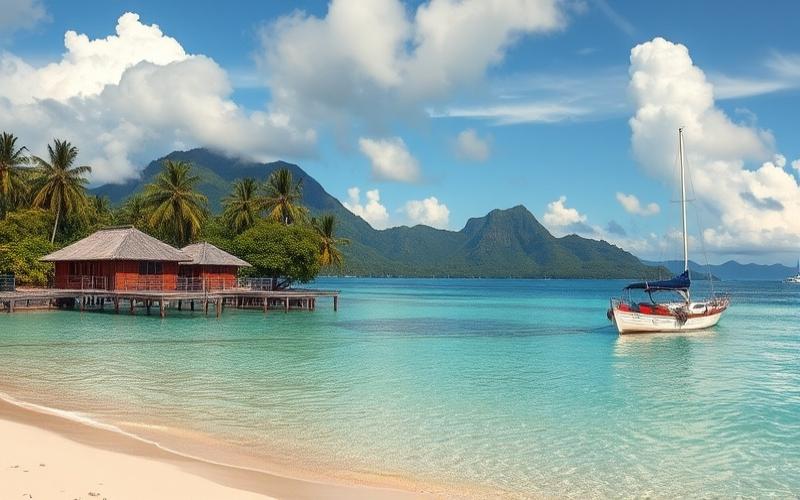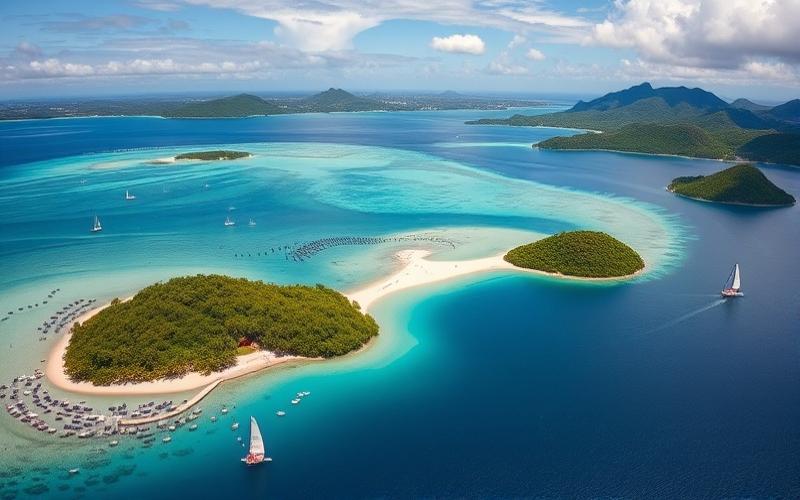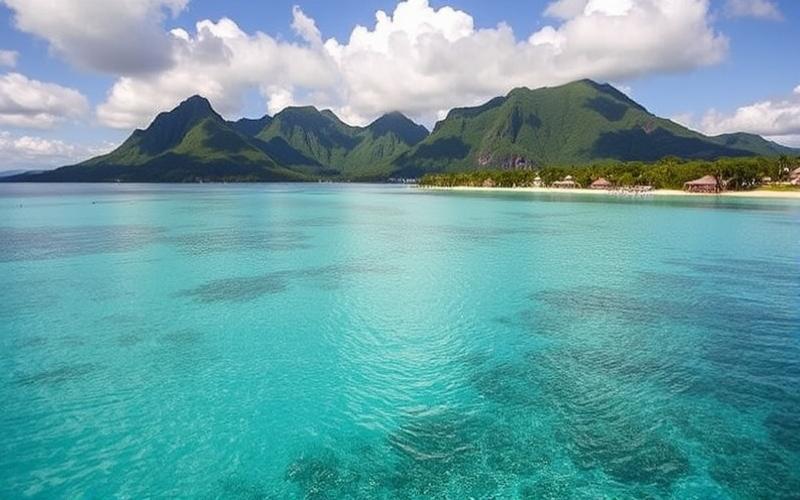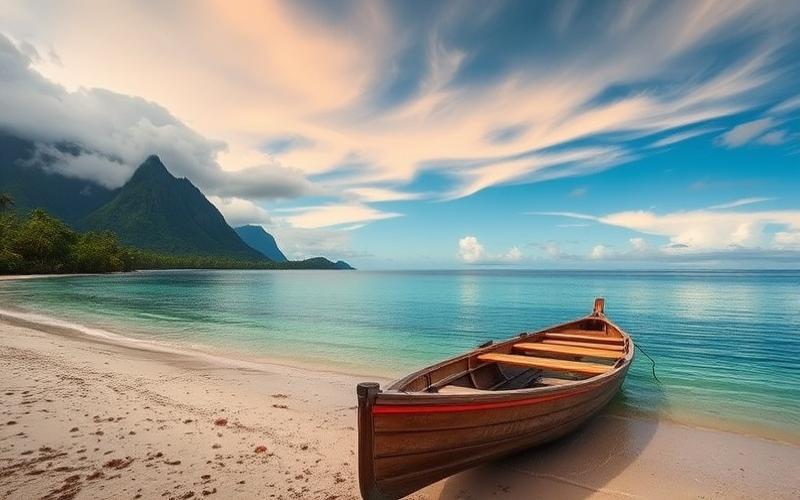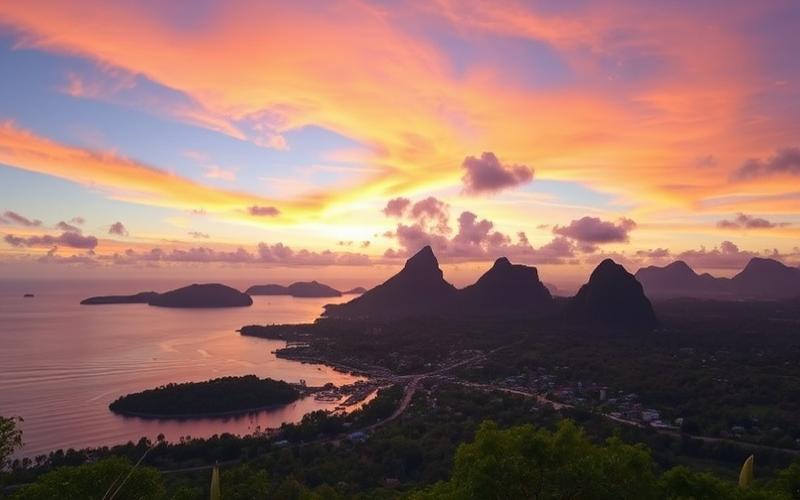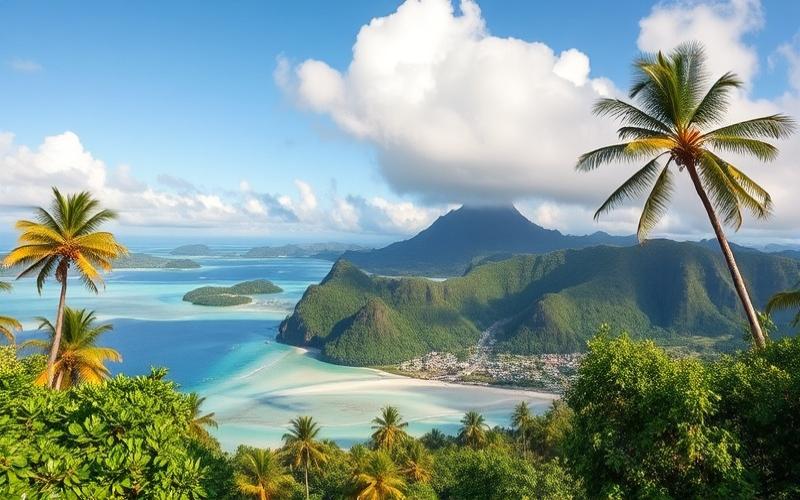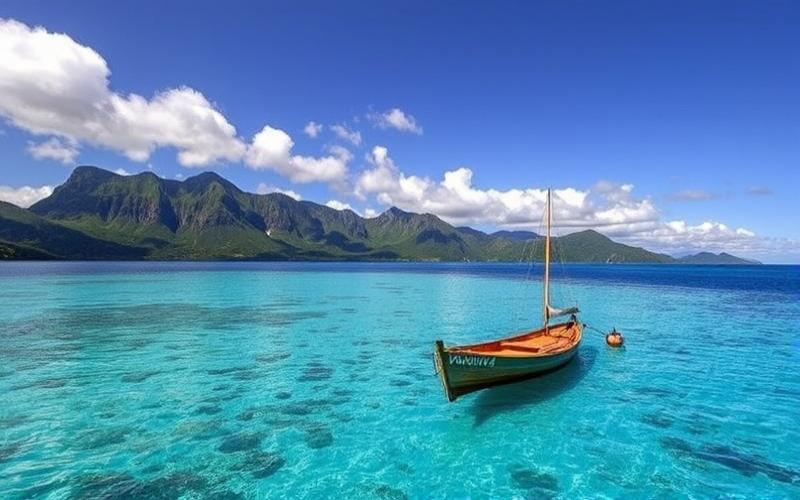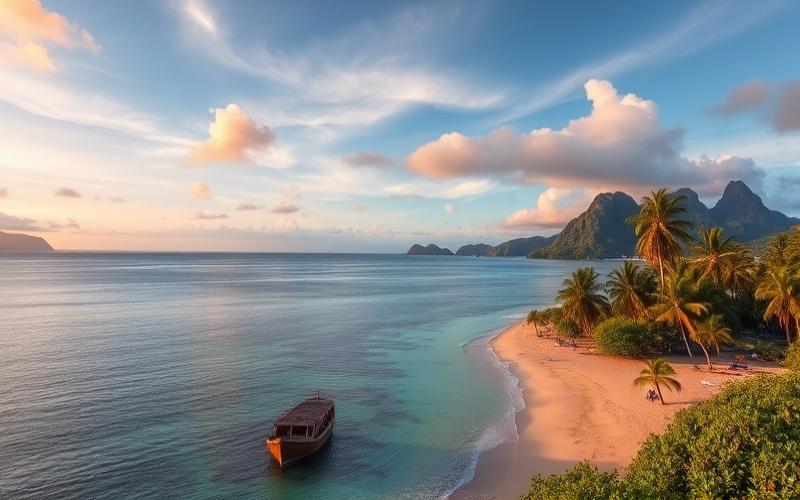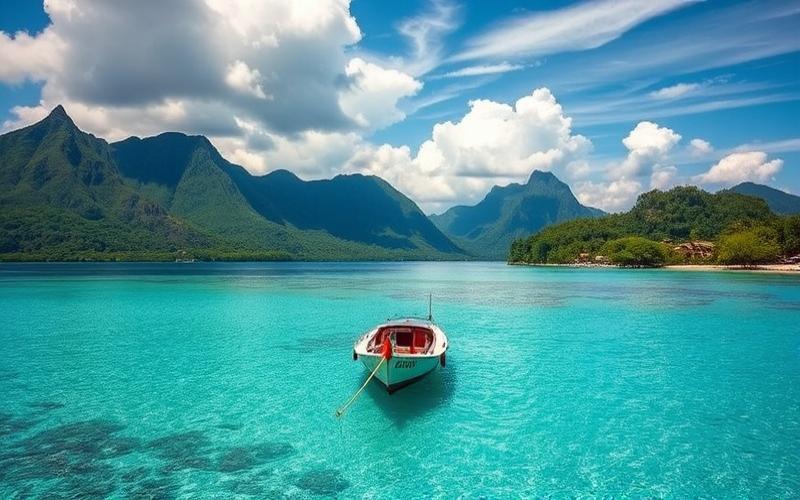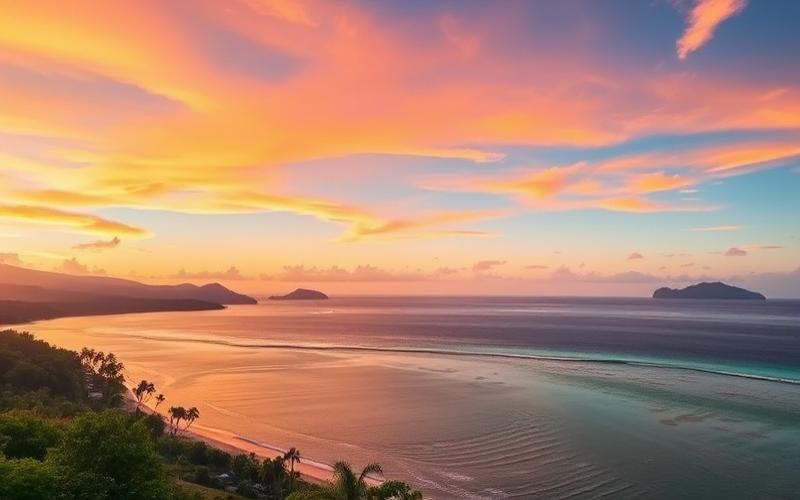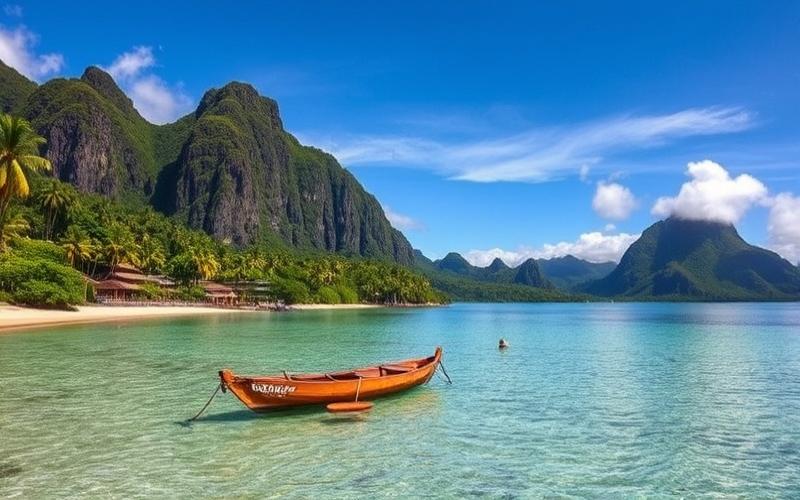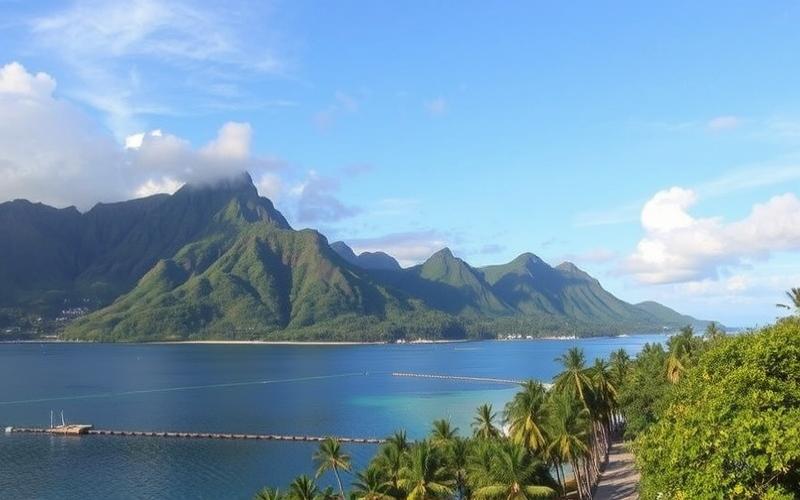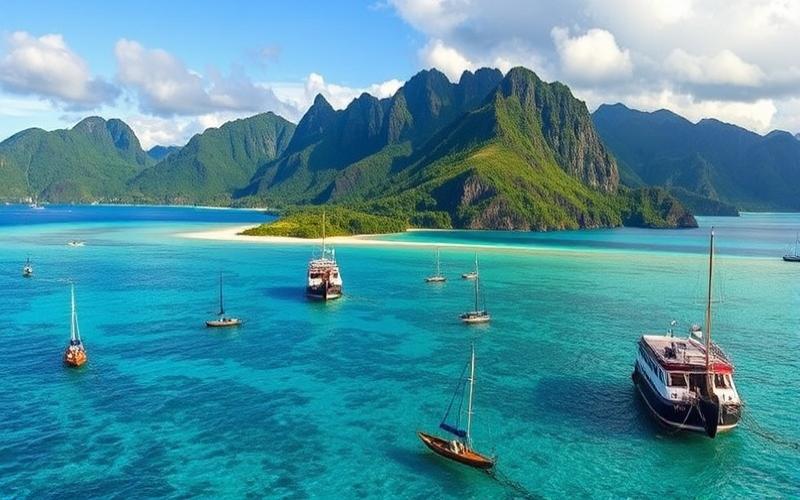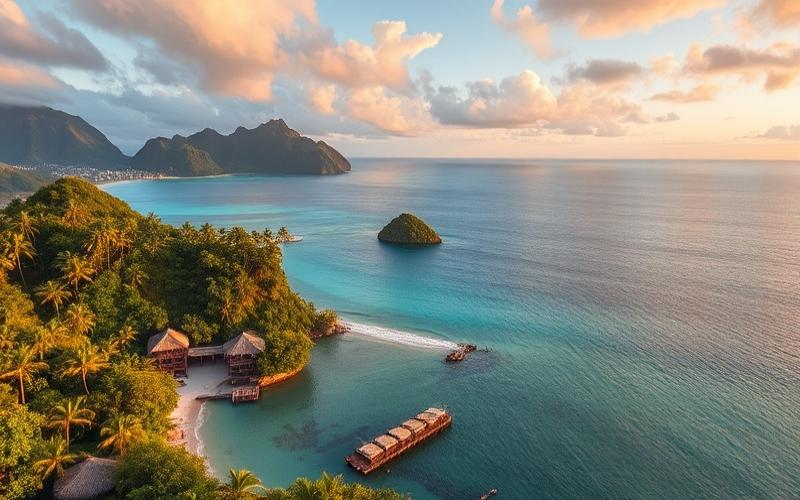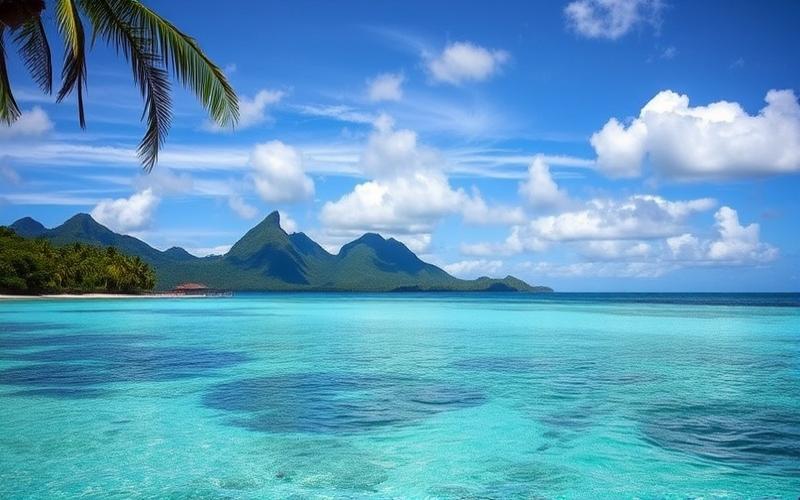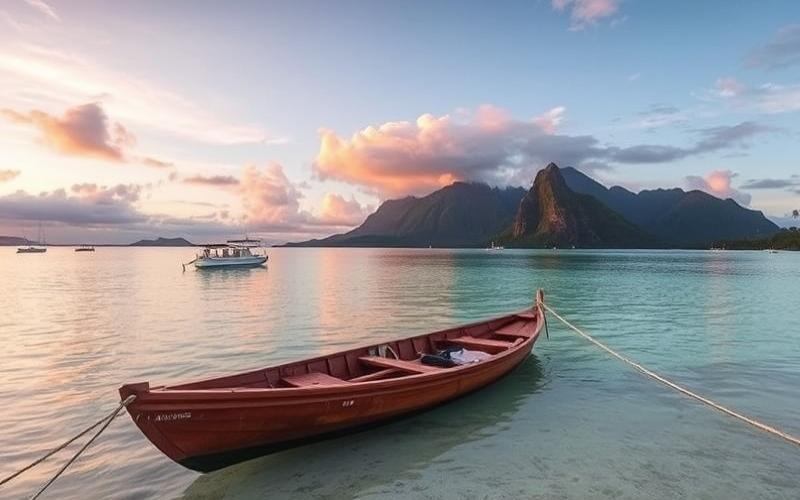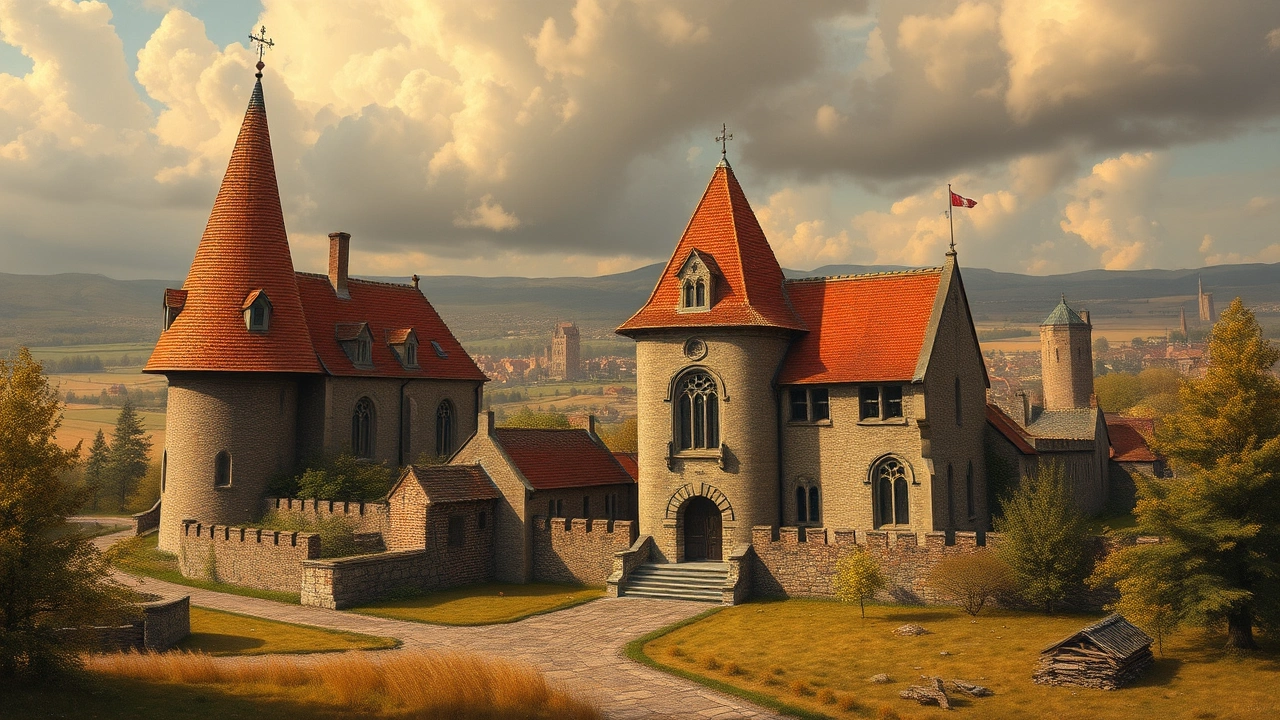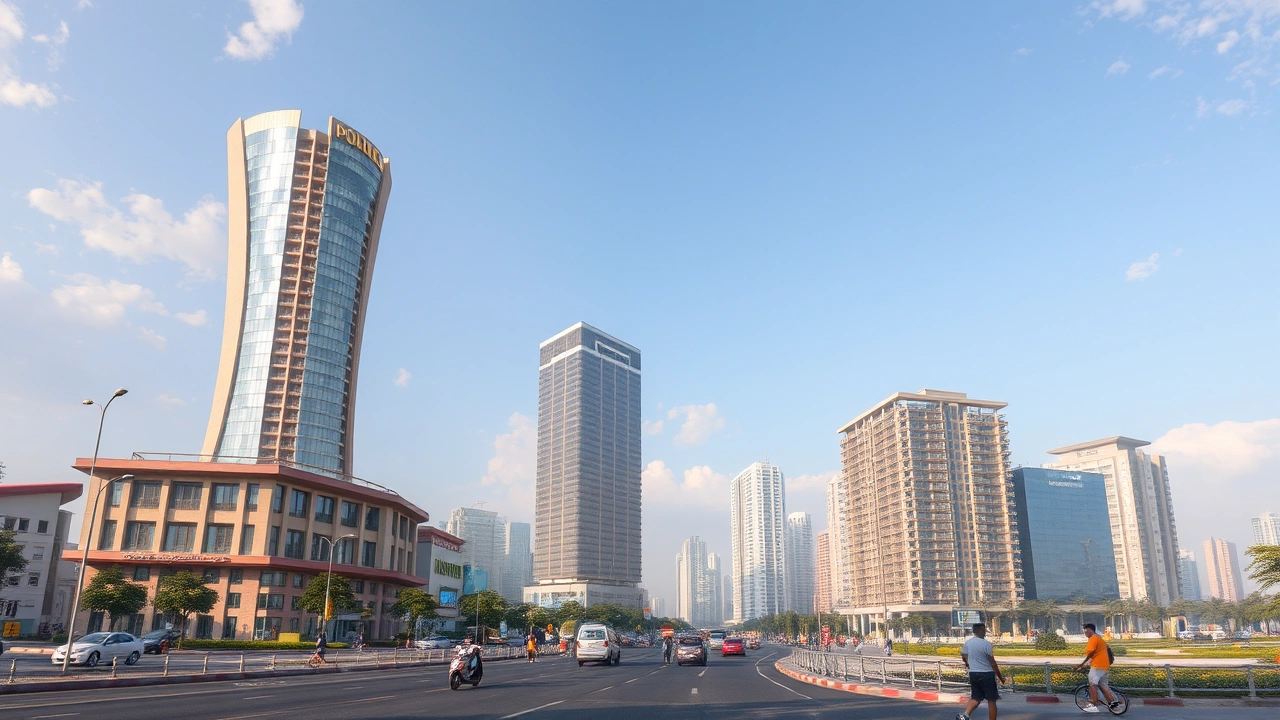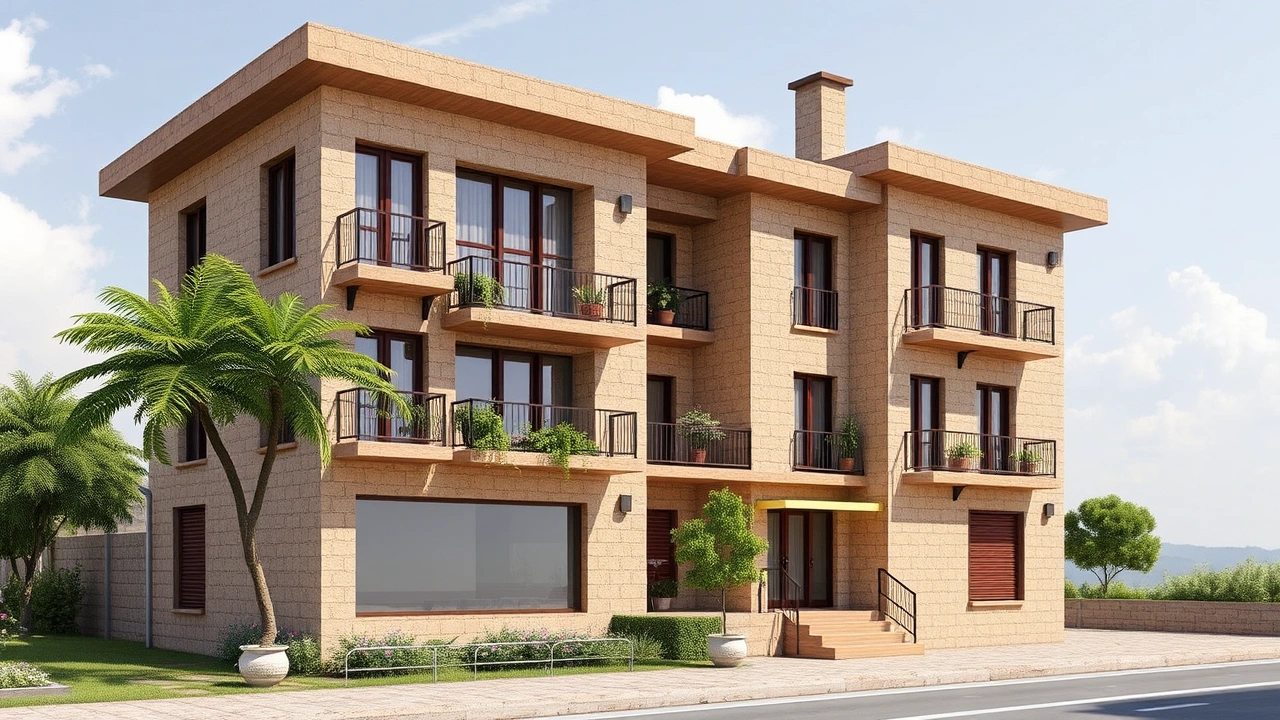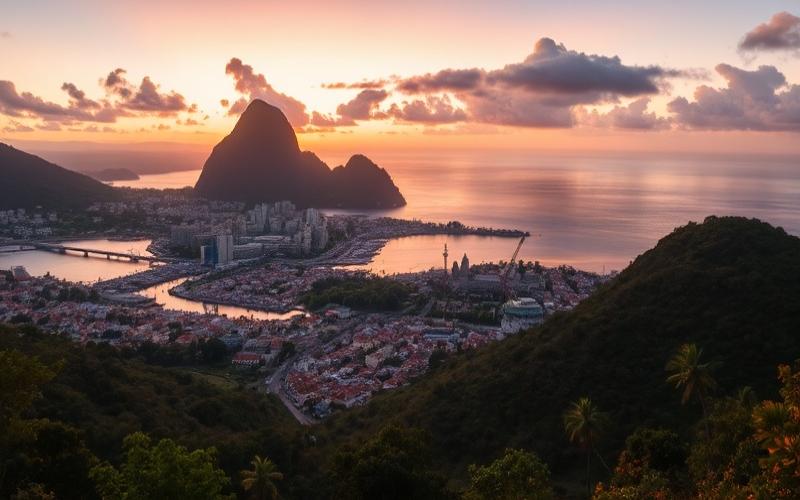
 Published on and written by Cyril Jarnias
Published on and written by Cyril Jarnias
Nestled in the South Pacific, Vanuatu’s archipelago has become a sought-after destination for French expatriates
Seeking to escape metropolitan hustle, yet where do they actually settle? This article will deeply explore the geographical preferences of these newcomers, going beyond postcard clichés.
From Efate’s paradise coast to Espiritu Santo’s remote villages
Each region attracts French nationals with different promises. While some prioritize the seclusion of remote beaches, others seek total immersion in Ni-Vanuatu community life, creating enclaves where French culture blends harmoniously with local traditions.
Good to know:
Vanuatu offers unique geographical diversity, ranging from tourist coastal areas to more isolated inland regions, each with its own advantages for expatriates.
Impact of French migration on Vanuatu
This settlement phenomenon leads us to question not only the motivations behind these choices, but also the impact of these migrations on the social and economic fabrics of these fascinating islands.
Mapping Francophone communities in Vanuatu
The main Francophone communities in Vanuatu concentrate around Port-Vila, the capital located on Efate island, as well as in certain regions of Malakula and Espiritu Santo islands. Port-Vila constitutes the main urban hub where Francophone presence is most marked, particularly thanks to the existence of French educational institutions, associations, and cultural venues like the Relais de la Francophonie. This cultural center, recently rebuilt after a cyclone, acts as a focal point for economic and cultural exchanges between local Francophone communities and their external partners.
In secondary islands such as Malakula and Espiritu Santo, there are also Francophone Protestant communities that historically belong to a distinct religious organization. These settlements are partly explained by Vanuatu’s colonial history: during the Franco-British condominium (1906-1980), each power favored its own educational and religious networks in different parts of the territory. This duality has durably structured linguistic distribution among rural populations.
| Region/Island | Main town or village | Francophone presence |
|---|---|---|
| Efate | Port-Vila | Very strong |
| Malakula | Norsup | Moderate |
| Espiritu Santo | Luganville | Moderate |
- Education (primary and secondary schools in French)
- French associations such as ADFE (Français du Monde) or UFE (Union des Français de l’Étranger)
- Cultural events organized around the Relais de la Francophonie
- Entrepreneurial initiatives led by members active in tourism or agriculture
The French language exerts notable influence in these areas both institutionally and in daily life: it has been an official language alongside English since 1980, used in certain local media as well as for a significant portion of public administration.
Recent demographic data indicate that approximately 40% of inhabitants can be linked to the Francophone community – compared to 60% for the Anglophone community – representing several tens of thousands of people distributed mainly across Efate but also in some important regional centers. While this proportion has tended to stabilize over the past two decades after declining following independence in 1980, it remains significant for understanding current linguistic dynamics in Vanuatu.
Key takeaways
The vitality of Francophone communities relies as much on their unique history linked to the Franco-British colonial past as on their contemporary capacities to organize dynamic community life around structuring institutions present mainly in Port-Vila but also in certain key regional hubs.
Good to know:
Vanuatu, a Melanesian archipelago, hosts Francophone communities mainly located on Santo and Efate islands, with notable anchor points in the towns of Luganville and Port-Vila. French influence dates back to the Franco-British colonial period, marked by agricultural and commercial settlements that facilitated the emergence of Francophone villages. These well-integrated communities gather around economic activities such as commerce, education, and agriculture. French schools play a central role in maintaining French language usage, contributing to making French an official language of the country, alongside Bislama and English. According to recent studies, Vanuatu’s Francophone population is experiencing modest growth, benefiting from institutional recognition that ensures its cultural flourishing within the national landscape.
French expatriates and their preferred neighborhoods
Port-Vila, Vanuatu’s capital, is unquestionably the center of gravity for the French expatriate community. Several neighborhoods are particularly prized for their quality of life, accessibility, and presence of a dynamic Francophone community.
| Neighborhood / Area | Profile | Main assets | Housing types |
| Downtown (Port-Vila) | Urban | Lively atmosphere, proximity to services and French schools | Modern apartments, colonial houses |
| Pango | Residential | Quiet, nearby beaches, family-friendly ambiance | Single-family villas |
| Tassiriki | Upscale | Luxurious villas with bay views | Prestige villas |
| Mele | Rural/beachside | Preserved nature, beaches and waterfalls | Traditional houses or villas |
| Havannah Harbour | Beachside | Idyllic setting for nautical activities | Stilt bungalows |
Why do these neighborhoods appeal to French expatriates?
- Accessibility: Neighborhoods around downtown offer excellent connection to essential businesses (supermarkets, banks), French schools, and the embassy.
- Quality of life: Numerous green spaces and direct access to renowned beaches. Security is good.
- French community: The local social fabric facilitates integration; organized groups often host French-speaking aperitifs or regular outings.
- Proximity to services: Restaurants offering European cuisine (artisan bakeries run by French nationals), suitable medical facilities.
Expatriate testimonials
“We chose Pango because our children can walk to the French school. The atmosphere is relaxed; everyone knows each other here!”
“In Mele, I feel close to nature while staying connected to the rest of the country thanks to Port-Vila being just fifteen minutes away by car.”
Outside Efate (the main island), some more adventurous French nationals also settle on Santo – particularly around Luganville – to enjoy an even more authentic lifestyle. There:
- Housing often consists of bungalows by lagoons or even on stilts;
- The pace is slower but infrastructure remains sufficient;
- Proximity to Champagne Beach attracts diving enthusiasts or those seeking relaxation.
Finally on Tanna, some expatriates choose complete immersion in a traditional village, living according to local customs around Mount Yasur volcano.
Cultural particularities
Daily coexistence between English and French languages greatly facilitates settlement; however many expatriates also learn Bislama (local creole) to strengthen their bonds with the Ni-Vanuatu population. New arrivals are often quickly invited to Franco-Vanuatu community events where culinary and cultural exchanges mark the year’s rhythm.
Good to know:
In Vanuatu, French expatriates are mainly attracted to Port-Vila, the capital, due to its accessibility and well-established French community. Erakor and Pango neighborhoods are particularly popular for their peaceful quality of life, nearby beaches, and availability of essential services, ranging from international schools to French cafés. Typical housing includes spacious houses with gardens, perfect for families, but also modern apartments for young professionals. Many expatriates report enjoying cultural events organized by the community, which strengthen social bonds and help them feel somewhat at home. A common anecdote is that of a French couple discovering by chance a local baker trained in France, thus bringing a touch of familiarity with fresh bread and pastries every morning.
Integration into French networks in Vanuatu
The French presence in Vanuatu is part of a long history, marked by the establishment of the first French planters in the late 19th century, mainly on Espiritu Santo and Malakula islands. During the colonial period, the Franco-British condominium (1906-1980) structured the integration of French communities, often isolated but active in local economic and social life. At independence in 1980, there were approximately 3,500 French nationals in Vanuatu; this number decreased after independence but remains significant today with a majority residing in Port-Vila.
Sectors favored by French nationals:
- Tourism: hotel management, travel agencies, and nautical activities.
- Restaurants: opening French or fusion restaurants.
- Education: teachers in French or bilingual schools; involvement in developing the University of Vanuatu.
- Water and electricity distribution (example: Unelco/Suez).
- Commerce and import-export mainly located in Port-Vila.
Active French associations in Vanuatu
| Association | Domain | Main activities |
|---|---|---|
| Alliance Française | Culture/Education | Promotion of French, cultural events |
| Amicale des Français | Networking/Support | Support for new arrivals |
| Chambers of commerce | Economy/Entrepreneurship | Support for entrepreneurs |
Contemporary integration challenges
Challenges encountered
- Persistent language barrier between Francophones/Francophiles and Anglophones; necessity for many to master Bislama (national vehicular language), as well as French and/or English depending on sectors.
- Cultural adaptation to an environment marked by strong Melanesian identity.
- Anglo-French competition inherited from colonial past that still sometimes manifests in certain professional or institutional circles.
Notable successes
The recent opening of a local branch of the French Development Agency (AFD) energizes university, scientific, and commercial cooperation between France and Vanuatu. The continuous development of the Francophone educational network also constitutes a major lever to strengthen this integration.
Collaborative dynamics with local communities
Franco-Vanuatu collaboration manifests particularly:
- Through educational partnerships around bilingual schools or university projects,
- Through technical expertise sharing (for example in urban or environmental management),
- Through joint valorization of cultural heritage during events organized jointly with Vanuatu authorities.
These dynamics generally foster positive perception of French nationals among Vanuatu society: they are seen as active contributors to local economic development while carrying appreciated cultural diversity. However, some tensions persist around land or memorial issues linked to the colonial period—requiring constant dialogue to ensure harmonious integration.
Good to know:
French nationals settled in Vanuatu mainly integrate into tourism, restaurant, and education sectors, where they play a crucial role in local economic development. Historically, French communities have built strong bonds both professionally and socially, thanks to active associations like Alliance Française, which foster cultural exchanges. However, they face linguistic challenges, as French is not the dominant language, which can sometimes complicate interactions with the local population. Initiatives aimed at strengthening collaborations, such as joint educational projects, illustrate the successes of this integration, improving perception of French nationals while valuing the country’s multiculturalism.
Disclaimer: The information provided on this website is for informational purposes only and does not constitute financial, legal, or professional advice. We encourage you to consult qualified experts before making any investment, real estate, or expatriation decisions. Although we strive to maintain up-to-date and accurate information, we do not guarantee the completeness, accuracy, or timeliness of the proposed content. As investment and expatriation involve risks, we disclaim any liability for potential losses or damages arising from the use of this site. Your use of this site confirms your acceptance of these terms and your understanding of the associated risks.

